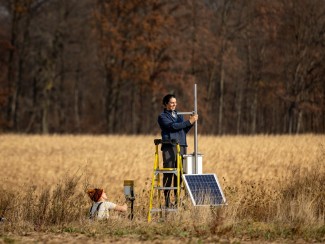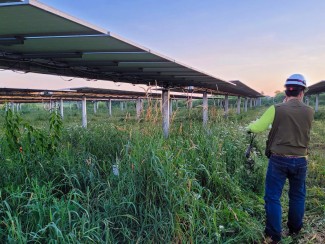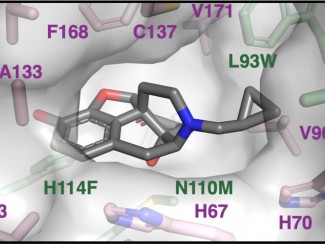Researchers from the University of Wisconsin–Madison and the University of Florida will use a $7 million grant from the U.S. Department of Energy to study how some plants partner with bacteria to create usable nitrogen and to transfer this ability to the bioenergy crop poplar.

Plants that produce their own nitrogen would require less fertilizer, which would save farmers money and reduce the environmental pollution caused by fertilizer runoff into waterways.
The scientists will study how legumes — alfalfa, beans, and their cousins — evolved the ability to cooperate with bacteria to turn the nitrogen that is so abundant in the air into a form usable by plants. That process is called nitrogen fixation, and it takes place in specialized root organs called nodules that harbor soil bacteria. Recreating this ability in other plants has long been a goal of microbiologists and plant biologists interested in improving agriculture, says Jean-Michel Ané, a professor of bacteriology and agronomy and the lead researcher for the UW–Madison team.





